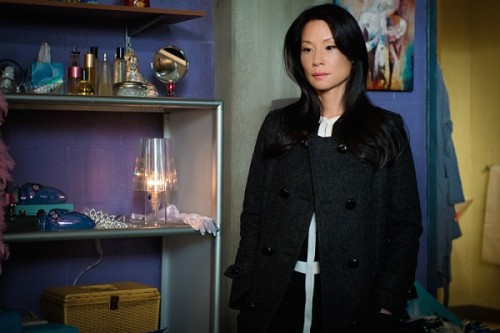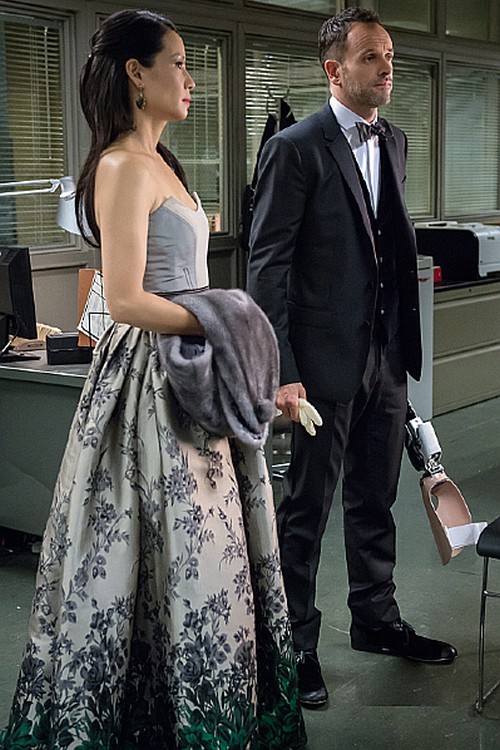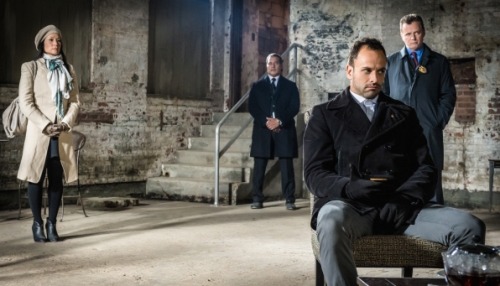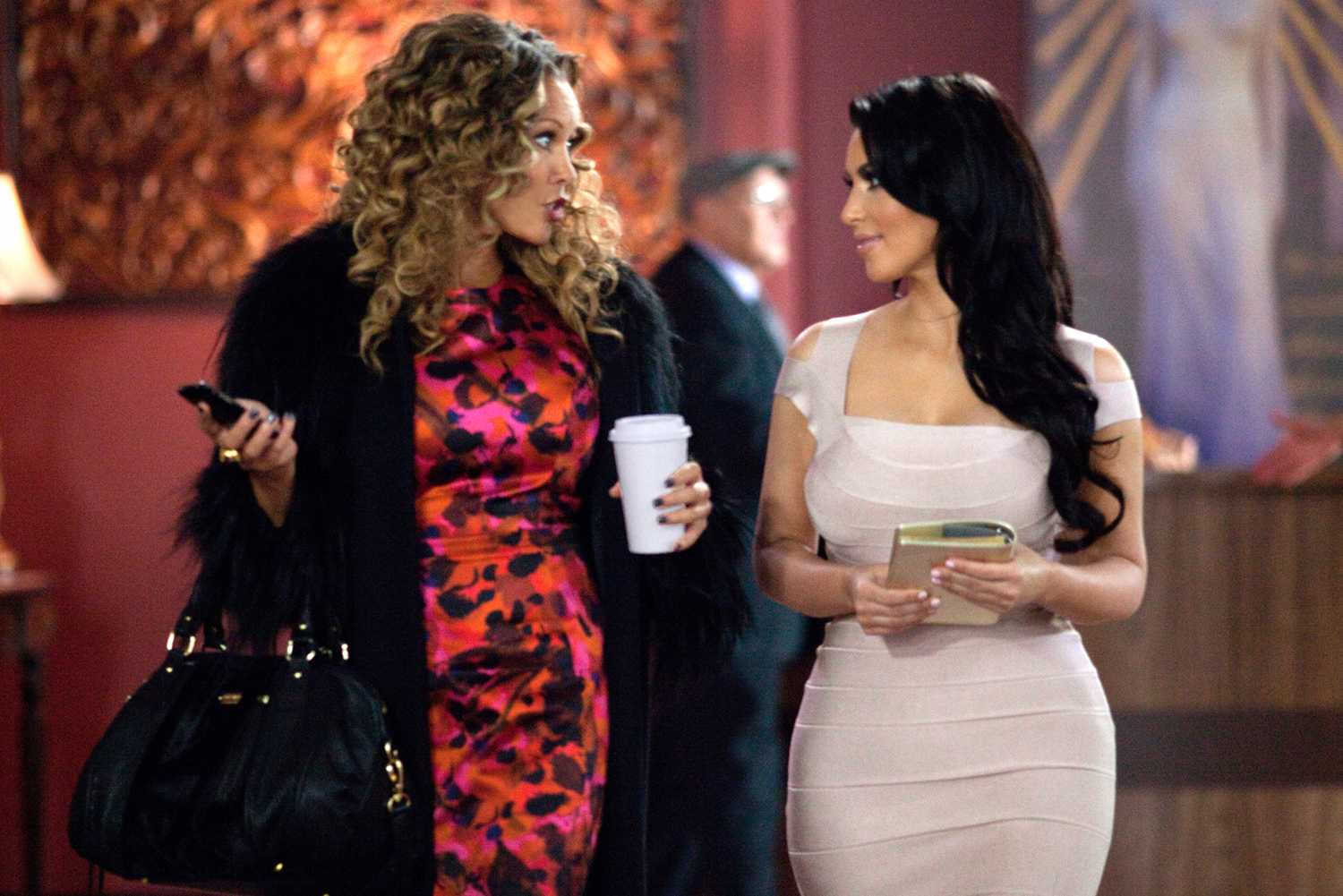TEMPTATION: CONFESSIONS OF A MARRIAGE COUNSELOR
If at least one thing can be said for
Temptation: Confessions of a Marriage Counselor (or to give it a more titillating title,
Tyler Perry's Temptation: Confessions of a Marriage Counselor) it is that it has the most delightful title, at least to me, since
2 Fast, 2 Furious. In almost every other way,
Temptation is more ammunition for those who detest everything about a Tyler Perry film: a story in turns lousy and preachy, bad acting, clumsy and unimaginative directing, and predictable 'twists' that are so obvious you just keep waiting for the characters to catch up to you.
Using the framing device of a counseling session between a couple that is facing a potential infidelity by one of the spouses (the female), the unnamed marriage counselor tells the story of her sister, Judith (Jurnee Smollett-Bell). Judith was a good churchgoing girl (or rather, was compelled to be a good churchgoing girl by her extremely religious mother), Sarah (Ella Joyce). Still, she had fallen madly in love with Brice (Lance Gross). They get married and now we go to ten years later with no children.
Judith is a statistician at a matchmaking agency headed up by Madame Janice (Vanessa Williams), who speaks with a very pronounced French accent. Her job is to produce and conduct personality tests to see about who is best match, and now Judith is confronted with Harley (Robbie Jones), a successful entrepreneur still having difficulty finding a woman. Brice is now working as a pharmacist, hoping to open a shop of his own. Into the shop Brice and the pharmacy manager Chapman (Renee Taylor) meet Melinda (Brandy Norwood) who wishes to work there and is running from a terrible secret.
Judith is at first repelled by Harley: his arrogance, his openly flirtatious nature, his womanizing, but truth be told Brice does himself no favors by ignoring Judith and not standing up for her. Harley is shocked that Judith has had no other lovers, believing sex should be random, like the animals. This offends her both clinically and spiritually, but soon Judith starts to waver. He won't go for that kinky stuff, preferring vanilla sex. Temptation grows, and eventually, Judith succumbs.
She does her best to hide her affair, especially from Sarah, who is a respected (I would say, slightly bonkers) preacher. Melinda, meanwhile, has her own confessions: she's running away from a violent ex who has done terrible things to her.
One guess as to who that ex is...
Eventually though, something had to give. Judith starts finding new life and new clothes, thanks to her vapid co-worker Eva (Kim Kardashian). She goes from respected to trashy, quitting her job and turning into one of Harley's hos. Brice, still in love with her, tries to get her out of Harley's gutter ball (where all sorts of sex: straight and otherwise, along with boozing and drugging) are going on, but Judith is too far gone into the road of damnation to care. He finds some sort of temptation with Melinda, but we learn her own truth: that Harley was not only the violent ex, but that she has HIV, and guess who have it to her...and who has HIV now.
As we wrap up our sad story, we discover that the marriage counselor and Judith were the same woman. She goes to the pharmacy, where Melinda still works with Brice now running it, and with a new family of his own, including a son. Judith is there to pick up her AIDS medication.
Temptation simply tries too hard, where all its earnestness about the virtue of fidelity comes across less like a weird
Afterschool Special and more like an unintended comedy. Everything about Perry's film (which he adapted from his own stage play) is so forced and unnatural. The entire affair between Harley and Judith never flowed naturally, but was very forced, almost as if Perry said 'they're going to become lovers because I say they are, not because they show any interest in each other'.
Even when she falls into sin, Perry makes some odd choices. First, their first encounter a.) borders on near-rape, and b.) appears to be almost a fantasy sequence where the audience is not quite sure whether it was all in Judith's mind. When we do get a more 'realistic' tryst, the steam from the bath quite literally obscures everything. I can only hope Perry was going for some visual suggestions of the 'steam of passion', otherwise it was such a bungled affair (no pun intended).
Everything is very forced, trying too hard to make its case, right down to Aaron Zigman's score. The screenplay itself is a mess: either heavy-handed (only in a Tyler Perry film would a woman go from almost virginal to wretched crack-ho in a matter of weeks or months, the idea of self-restraint or control foreign to his characters) and predictable (whoever didn't see Melinda's connection to the story is simply an idiot...it was too obvious).
Oddly,
Temptation brought to mind
The Mortal Instruments in this respect. Here again we have a case where the female lead goes for the supposedly 'hot' male when he really is less attractive than the guy she rejects. Just like I thought the 'other man' in the love triangle in
The Mortal Instruments was more attractive than the male lead, I thought Gross was better-looking than Jones and kept puzzling why Judith would go for the uglier one.
It also doesn't help that Gross is about the only one who gives a performance that is far better than the script he has to work with (though in fairness, Brady did a good job with subpar material). Smollett-Bell looked almost uninterested in anything going on and for what is suppose to be a wild, passionate sexual relationship between her and Jones they have a glaring lack of chemistry onscreen. Their scenes together, especially when he attempts to seduce her, look unnatural and again, forced, as if neither either wants to be there or truly believe they are in there.
Taylor, whom I finally remembered as Fran Drescher's mother in
The Nanny, was a strange character in the film in that one was never sure whether she was there for comic relief or almost just wandered onto the set and Perry humored her by putting her in the film. Her character didn't add anything and made things more puzzling. However, nothing was as bizarre as Williams, whose French accent was dreadful. Granted there was a reason for it (she was trying to pass herself off as French when she really was from Georgia), and when this was revealed...near the end of the movie...it gave Williams the only intentional laugh I got in the movie; when Judith quits and confronts her about her fake accent, Madame drops it and tells Judith, "Bitch, you better get your ass outta my office."
Why am I going to rake Kardashian over the coals? I know she can't act (and has no discernible talents apart from having people videotape her having sex, which in my neck of the woods is called 'making porn'), we know she can't act, and even Kardashian knows she can't act. Therefore, at least she didn't even bother trying, though it is hard to figure out how even someone like Kim Kardashian couldn't read words on a page and make them sound like they came out of an actual human being.
I know Perry has been heavily criticized for having AIDS as some form of punishment for adultery, and I'm going to put that as again another attempt to be moralistic, not bigoted. It all could have been handled so much better.
Temptation: Confessions of a Marriage Counselor is badly acted, written, directed, and while there was a story somewhere in there it never emerged, never came together. If his message was 'stay faithful or else you'll get AIDS', that would make it all so foolish.
Finally, I will add this curious note: one of the credits reads "Mr. Perry's Chef: John Fravel". Putting aside the curious element of giving a screen credit to your chef, it does signal to me that
Temptation: Confessions of a Marriage Counselor might have done better if more focus was paid to what went on the screen than what went on the dinner plate.
DECISION: D-




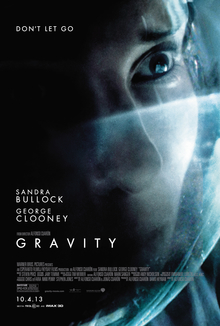





_poster.jpg)



